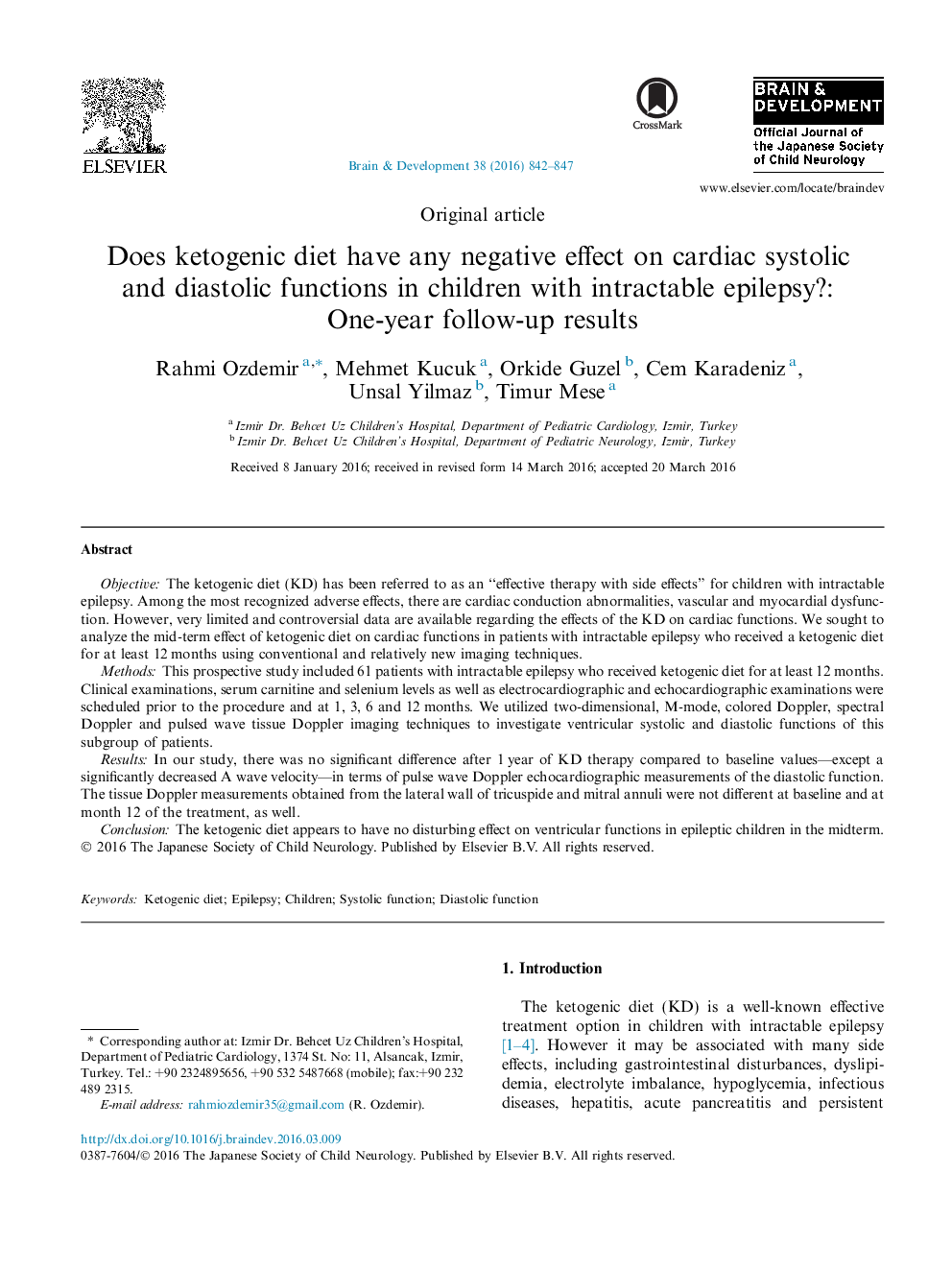| Article ID | Journal | Published Year | Pages | File Type |
|---|---|---|---|---|
| 3036428 | Brain and Development | 2016 | 6 Pages |
ObjectiveThe ketogenic diet (KD) has been referred to as an “effective therapy with side effects” for children with intractable epilepsy. Among the most recognized adverse effects, there are cardiac conduction abnormalities, vascular and myocardial dysfunction. However, very limited and controversial data are available regarding the effects of the KD on cardiac functions. We sought to analyze the mid-term effect of ketogenic diet on cardiac functions in patients with intractable epilepsy who received a ketogenic diet for at least 12 months using conventional and relatively new imaging techniques.MethodsThis prospective study included 61 patients with intractable epilepsy who received ketogenic diet for at least 12 months. Clinical examinations, serum carnitine and selenium levels as well as electrocardiographic and echocardiographic examinations were scheduled prior to the procedure and at 1, 3, 6 and 12 months. We utilized two-dimensional, M-mode, colored Doppler, spectral Doppler and pulsed wave tissue Doppler imaging techniques to investigate ventricular systolic and diastolic functions of this subgroup of patients.ResultsIn our study, there was no significant difference after 1 year of KD therapy compared to baseline values—except a significantly decreased A wave velocity—in terms of pulse wave Doppler echocardiographic measurements of the diastolic function. The tissue Doppler measurements obtained from the lateral wall of tricuspide and mitral annuli were not different at baseline and at month 12 of the treatment, as well.ConclusionThe ketogenic diet appears to have no disturbing effect on ventricular functions in epileptic children in the midterm.
